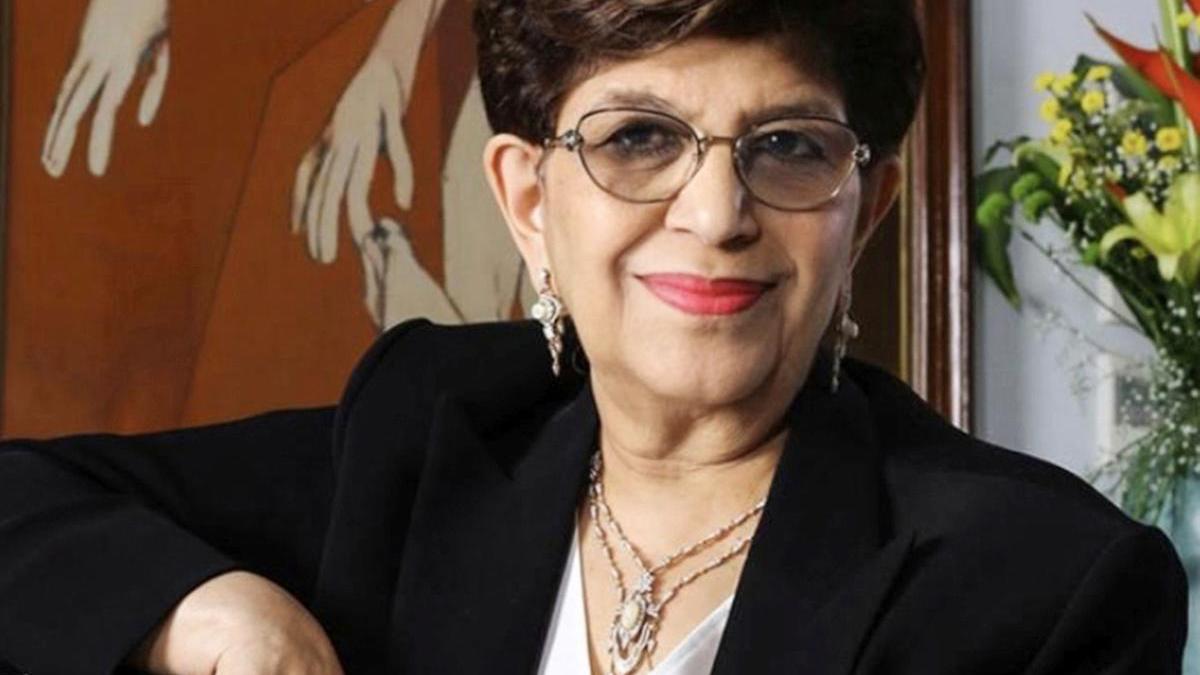As the daughter of renowned theater personality and visual arts promoter Ibrahim Alkazi, Amal Allana grew up in a culturally rich environment. “My father had the habit of making everyone his student. It started at home with my mother and us two children, who became her personal students.”
A theater director with over 60 stage productions and former chairman of the National School of Drama (NSD), New Delhi, Amal had last year released his father’s biography Ibrahim Alkazi: Holding Time Captive. She will talk about this in her conversation with journalist and author Kaveri Bamjai at The Hindu Lit for Life Festival in Chennai on January 19.
Amal says Alkazi believed that the entire family should be involved in understanding and creating art. She recalls, “He involved us in practically all aspects of his work, from the initial process of selecting a play, gathering the cast, through rehearsals, playing small roles, making posters, serving tea, meeting the audience. Bringing them to their seats, selling brochures, setting up exhibitions.”
Biography of Amal Allana on her father Ibrahim Alkazi.
She further says that Alkazi explained how the work should be done at each stage, that it should be considered a sacred task, completed on time and done in the spirit of team effort. He believed that “an idea never remains at the level of intellectual thought, but is put into action.”
Amal says that she has learned many qualities from her father. She lists them: “Looking beyond yourself and acting with a sense of selflessness. Fighting for what is legitimate. That theater is teamwork and collaboration. Simple, effective and creative solutions can be found to practice theatre, that one cannot trust anyone, you need to be independent and, therefore, prepare yourself in all areas. He would also say that working in any field of art is a long process that requires perseverance and consistent effort.
Alkazi (1925-2020) was from a family of Arabic origin. Born and brought up in Pune, he came to Bombay to study at St. Xavier’s College. It was here that he met Sultan ‘Bobby’ Padamsee, who ran the English Theater Company theater group, and his future wife Roshen, Bobby’s sister. He later trained at the Royal Academy of Dramatic Art (RADA) in London, but after Bobby’s untimely death he started leading theater groups in Bombay. Later, Alkazi formed his own company, Theater Unit, before moving to New Delhi as director of NSD. Although he was associated with theater for most of his career, he was a keen artist since his London days, later establishing the Art Heritage Gallery in New Delhi with Roshen.
Amal’s biography covers Alkazi’s life path in detail. She says, “My biggest resource, apart from interviews with Alkazi’s colleagues, friends and our relatives, was my lived experience with him. Everything I’ve written has been tested against what I personally knew and have observed about them throughout my life. I am careful to mention events that are not mere hearsay, but where I was actually present – as a child, teenager, daughter, student and theater practitioner.
In addition to citing letters between various family members, Amal used information provided by people with whom Alkazi had worked, including actors, painters, and historians. He also read a lot about the cultural scene of Alkazi’s time.
Amal says that many NSD students have written to him appreciating that they did not know much about his days in Pune and London or his deep connection with the art world since the 1940s. She says that even many artists were unaware of Alkazi’s own art and her desire to become a painter in her early days. She adds, “I have deliberately created my book by connecting Alkazi’s personal life and thoughts with public issues. This book is not a psychological study of Alkazi’s thoughts and actions, but a sociological look at how he helped meet the cultural needs of a new nation.
In his speech at The Hindu Lit for Life, Amal hopes to get the opportunity to highlight the context, as Alkazi’s career spans three distinct periods – the struggle for independence in the 1930s and 1940s, the 1950s and 1960s. The building of the nation during the 1970s, and the era from the 1970s to the 1990s, when cracks began to appear and the democratic character of the nation disintegrated It started happening. “These three are formative periods for the development of an identity for theater and visual arts. Not only does the subject matter change, but Alkazi’s approach towards the nature of his projects also changes in his effort to stay abreast of changing needs,” she explains.
Amal also hopes to touch on Alkazi’s cosmopolitan, expansive world view and his priorities and goals for the future of theater and visual arts. “There are so many things that can be uncovered,” she says.
The matter of execution comes at the beginning of Alkazi’s centenary. She says Ibrahim Alkazi: Holding Time Captive is also being made into an audio book, and she hopes to have it translated into Hindi and Bengali by 2026. This should benefit many theater followers and drama students.
The session will be held on January 19 at 10.35 am at The Hindu Pavilion.
published – January 09, 2025 11:58 PM IST
